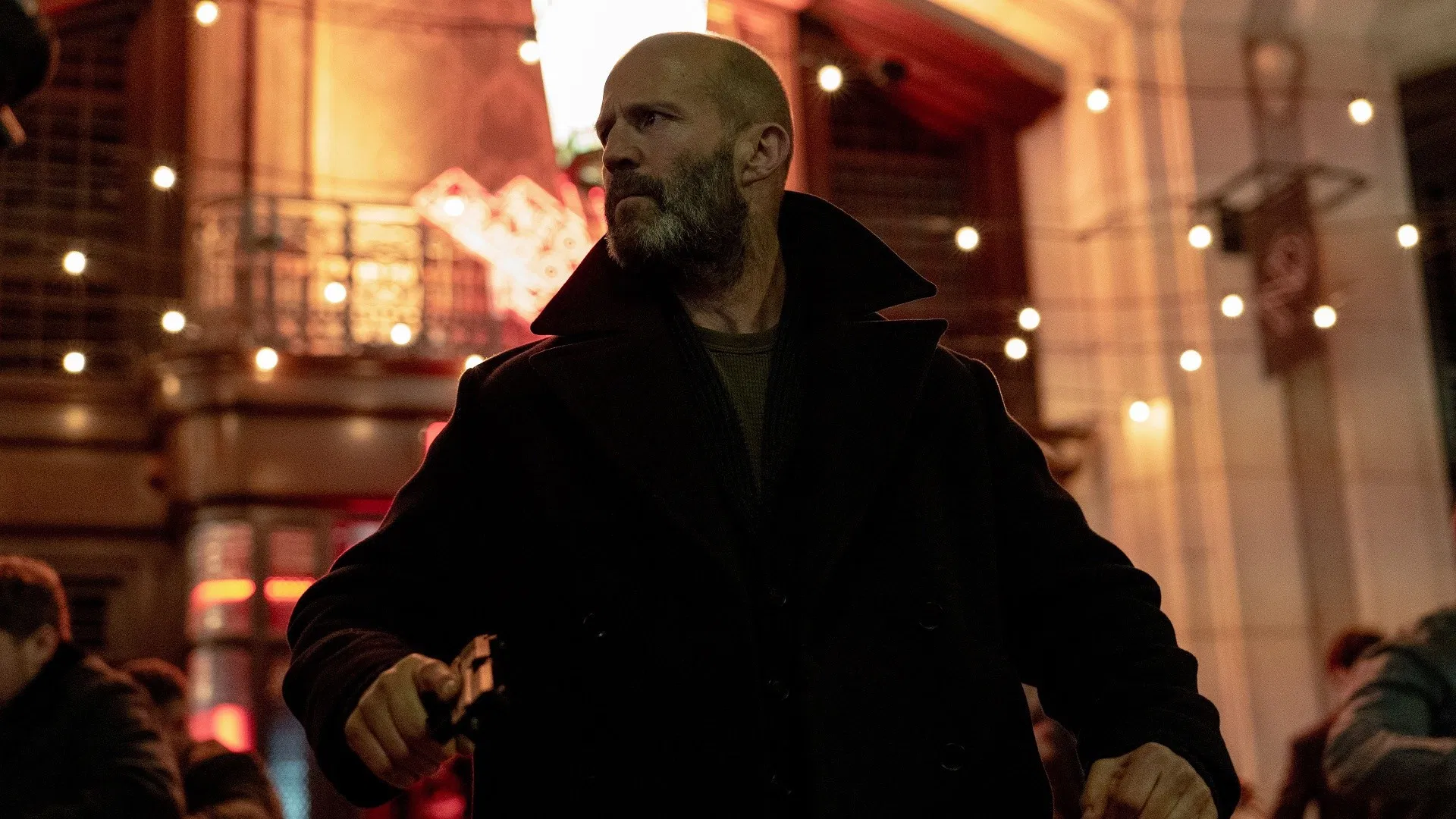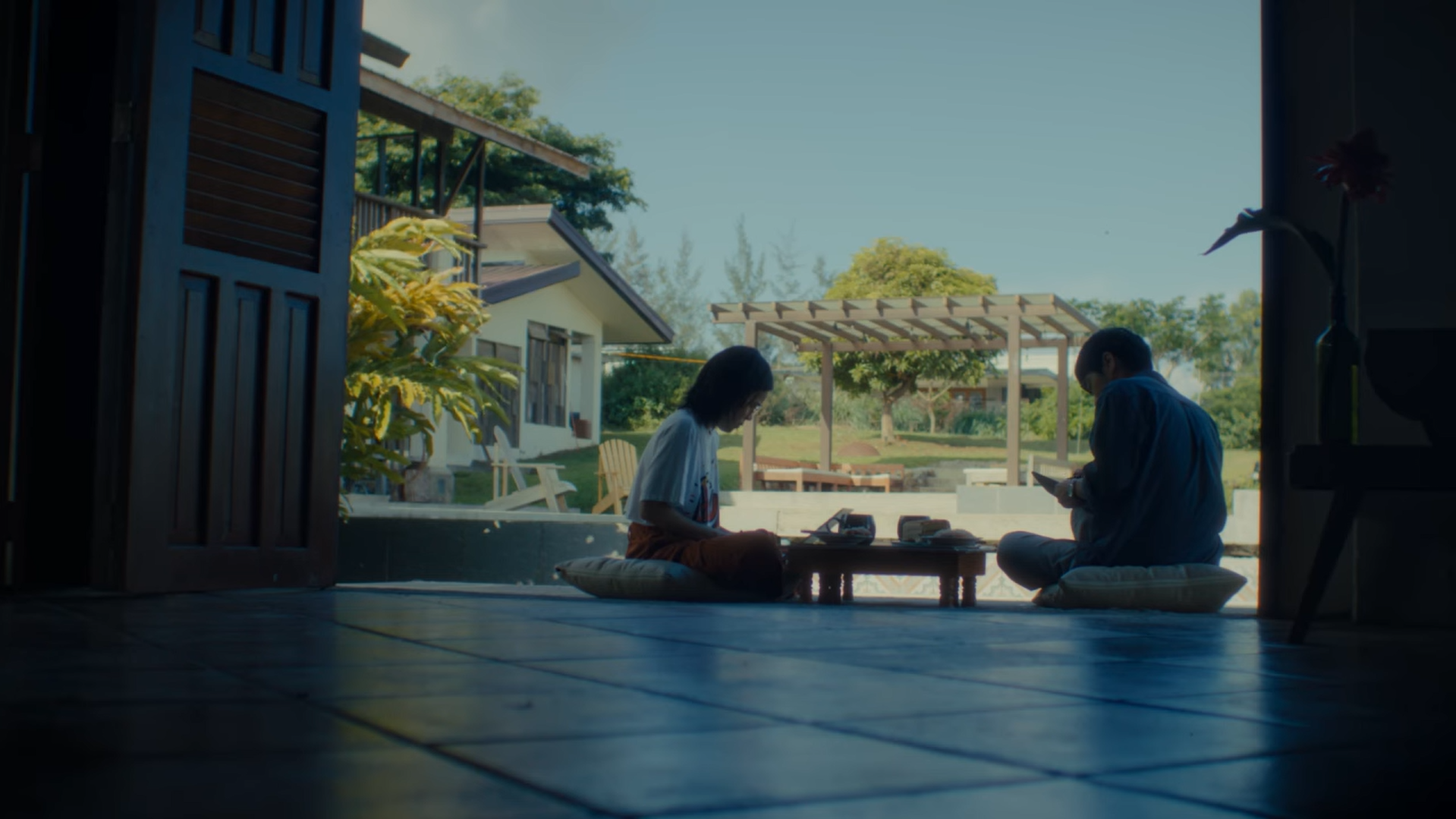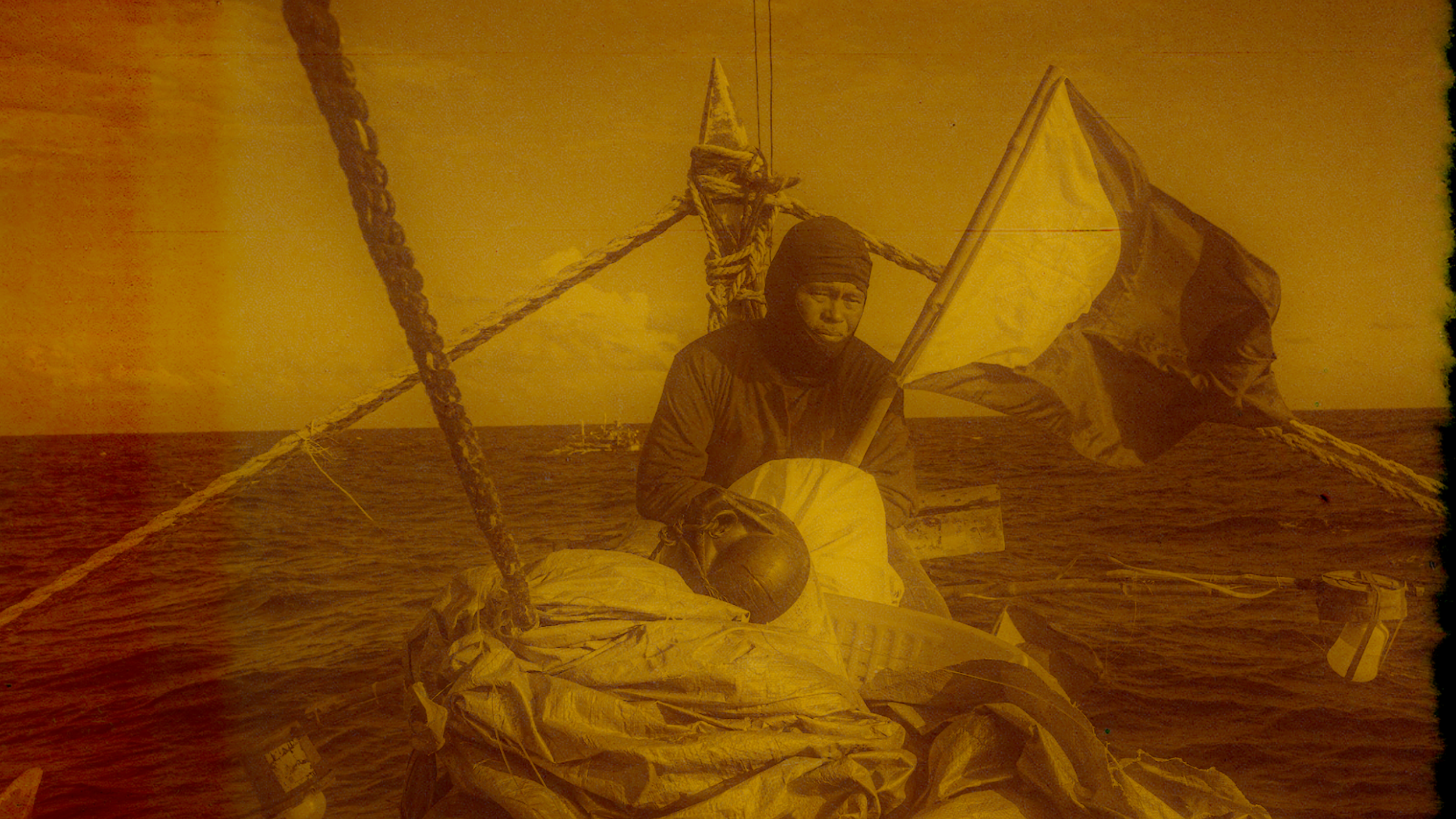'The Garden of Earthly Delights’ REVIEW: Confronting the Uncomfortable
'The Garden of Earthly Delights’ REVIEW: Confronting the Uncomfortable
JP Rodriguez as Anito “Ginto” in The Garden of Earthly Delights / Photo courtesy of BALDR Film & Popple Pictures
TRIGGER WARNING: This review contains mentions of drug use, sexual exploitation, and pedophilia
Before delving further into this film, it is essential to note that it is not entirely a Filipino film. It is set in the Philippines, features a mostly-Filipino cast, and even has co-production involvement with local companies, but it is ultimately a Dutch film that has its own perspectives, unconscious or otherwise, when it comes to depicting and presenting a Filipino story.
For director Morgan Knibbe, he would be the first person to tell you this point of contention. There is an open and keen self-awareness when seeing him discuss honestly what it means for a European to make a film like The Garden of Earthly Delights. He knows his position, understands that his place is in more of his reckoning as a white man telling one of our stories, and has even done a solid amount of research and reflection on the position our country has as a post-colonial nation.
So, for both the best and the most horrifying, The Garden of Earthly Delights is a deliberately uncomfortable and difficult film that mixes in so many moments that both push and reveal the limits of what foreigners can say about exploitation. But what it does accomplish is a flawed but respectable effort in its consistent ethos to expose and humanize that core issue at a systemic level that is at the heart of post-colonialist societies like ours.
Jakab Golding as Wolfy (left) and Benjamin Moen as Michael (right) in The Garden of Earthly Delights / Photo courtesy of BALDR Film & Popple Pictures
Knibbe opens the film with a James Baldwin quote: “People who shut their eyes to reality simply invite their own destruction, and anyone who insists on remaining in a state of innocence long after that innocence is dead turns himself into a monster.” It reads almost like Knibbe’s manifesto, a thesis statement about our tendency to look away and enable broken systems to continue. A toxicity of a post-colonial world.
Surrounding this toxicity is an entire system of exploitation that has defined the Philippines' relationship to colonialism. Starting it off at home is Anito or “Ginto,” (JP Rodriguez) a young boy willingly open to taking and dealing drugs while taking any chance to prove himself as a man, while everyone calls him gay. Then there is his hardworking prostitute sister, Asia (Francesca Dela Cruz), basically a foil to Ginto by simultaneously feeling guilt over her job while deeming it necessary to escape poverty and immigrate to Denmark. Another central character of the film focuses on a Dutch expat, Michael (Benjamin Moen), revealed to have come to the Philippines to pursue young boys. And when his original target of a kid of a Filipina he was talking to, ghosted him, Michael sinks into the dark underbelly of Poblacion to find solace, and internally, a boy he desires as well.
Outside of the character, there is a constant visual subtext of Manila that pervades in all the most underbelly and sleaziest. An example includes a shot showing an assembly line shoe factory that plainly presents the sheer volume of underpaid and overworked labor made to lower the costs of manufacturing. Additionally, even the film directly calls out the police by the camera being an inside witness into the sheer magnitude of cruelty and torture they do to ordinary Filipinos, like it’s a normal 9-to-5 duty for them.
But even within the film’s neorealist bleakness, Knibbe makes a pointed attempt to reach toward something older and sacred in our past: the Babaylan, our pre-colonial queer healers who bridged the material and spiritual worlds. In one of the film’s boldest swings, Ginto, detained in a jail cell, follows a queer prisoner through a small door and suddenly finds himself in an uncanny jungle, welcomed by an indigenous community as if he were a long-lost kin.
It’s a scene that is rapturous in intention, undeniably potent in its reclamation of queerness as something divine. But it also toes that uncomfortable line: the leap from Manila’s neorealist grit to a surreal, Edenic tribal vision feels dangerously adjacent to exoticism. It’s the kind of aesthetic primitivism foreigners often reach for when depicting our pre-colonial selves and conditions. Don’t take me wrong; Knibbe means well here, and the emotional payoff is genuine, but that sudden stylistic shift and mismatch risks reducing our cultural sacredness into mere imagery rather than a lived reality.
This isn’t the film’s only mention of the Babaylan. Beyoncé (Bunny Cadag), Asia’s transwoman friend, becomes Ginto’s emotional anchor amidst his sexual awakening and his suffocating internalized shame. In a moment of fragile tenderness, when Ginto is just released from prison, she tells him: “Importanteng tao ang mga bakla noong unang panahon. May kapangyarihan silang makipag-usap sa mga espiritu… at kahit anong gawin nila, hindi nila tayo mabubunot sa lupang ito” (Back then, queer people were important figures. They had the power to communicate with spirits… and no matter what they do, they will never be able to uproot us from this land). It’s one of the film’s clearest post-colonial critiques: that the violence against queer Filipinos is not native to us, but something planted here by colonizers. That queerness is not an aberration straying from tradition, but a tradition stolen, suppressed, and overwritten.
Visually, the film is equally confrontational. The cinematography is turbulently ambitious — at times stunning, at times abrasive, always intentional. The tight close-ups, especially on Michael, feel suffocating. His face, half-swallowed by shadows, looks like it is hiding inside itself, inside a man who is trying to bury impulses he refuses to confront. These claustrophobic frames become the film’s nudge to the audience to mistrust, telling us to fear the calmness of this man long before he acts on his desires.
Whenever the film spills outward into the streets, in pursuit, or into chaos, the camera then becomes unmoored. This handheld shakiness pulls the viewers into the physicality of fear, desperation, and breathlessness, so you don’t just watch the running, but feel the sprinting in your chest.
The same treatment is applied to scenes involving sexual exploitation — and it is disturbingly effective. The camera never lets you sit back from afar and observe; it forces you into proximity, into complicity, as if you, too, are being dragged into the act. There is something ungodly about it, something intentionally violating: it indicts the viewer for merely being able to watch. It strips away and penetrates beyond the silver screen and confronts you with the reality that exploitation is always witnessed before it is stopped. And by how hauntingly long those scenes were — often, it never stopped at all. The most disturbing scene of all doesn’t even involve the explicit penetration scenes; the final scene of Michael tenderly touching Ginto was, with every intimate touch and kiss, feeling more physically sickening. The sexual acts shown here are at very explicit levels that will push anyone's limits and comfort. Because at its best, it's empty and transactional; at its worst, it is skin-crawlingly unnerving and uneasy seeing sexual exploitation at its most confrontational and intimate.
To interconnect that with Ginto’s self-discovery as a young gay person simultaneously feels human but prone to a stigmatized connection of queer identity to sexual deviance.
This is all because the film is nothing if not an assault on our cultivated comfort. It is unapologetically disturbing — intentionally, and almost aggressively so — because it refuses to let the viewer slip into the convenient detachment usually afforded to audiences, especially those of the Global North. In confronting the systemic exploitation of children, of women, and of queer bodies, the film is essentially saying: if you watch this and feel nothing, or worse, feel immune to it, then the violence is already in you. It is a direct affront to those who still cling to a fantasy of innocence within a brutally unequal and oppressive system that survives by consuming the vulnerable.
JP Rodriguez as Anito “Ginto” The Garden of Earthly Delights / Photo courtesy of BALDR Film & Popple Pictures
And so the question inevitably arises: how does a film like this avoid becoming just another iteration of poverty porn? Because while the film wears a postcolonial lens with sincerity, it nonetheless mirrors the very exploitation it seeks to dismantle. It claims authenticity by casting young non-actors, pulling directly from their lived realities, and challenging the stereotypes that make those experiences flat. But when those same non-actors are placed into scenes and conditions of blatant sexual exploitation and human trafficking, the film’s ethical scaffolding begins to tremble. How do we reconcile a work critiquing exploitation that also requires its most vulnerable performers to reenact, in morbid detail, the exact violence the film condemns? Can the sincere effort from a foreigner overtake these inherent contradictions?
In a country shaped by systemic exploitation, the exploited do not always have the luxury of questioning the ethics of representation, especially when survival hangs heavier than dignity. That is our postcolonial condition: desperation mutates into consent, and consent becomes a currency that filmmakers, even well-intentioned ones, are able to trade in. The film does not flinch at prodding the most sensitive wounds, perhaps not because it simply wants to confront the comfortable, but because its vantage point — even while armed with critical theory, heavy research, and solidarity — remains that of an outsider. Its insistence on showing everything risks slipping into a familiar condescension: the assumption that oppressed people remain ignorant of their own suffering and must be shown the brutality of their world as if it were a revelation.
So yes, The Garden of Earthly Delights may very well be made out of solidarity; its respectable effort to tackle humanity at the core of its subjects is even noteworthy. But solidarity does not erase power. And we cannot ignore the elephant in the room simply because the filmmaker’s intentions are noble. In the final analysis, the film becomes a paradox: an indictment of violence that still replicates violence, oppression upon oppression, a critique of exploitation that still relies on exploiting the image of the exploited. And it wasn't for a lack of care or effort, but a fundamental issue of unconscious soft power over our own narrative.
Whether that contradiction damns the film or deepens it is up to the viewer. But the discomfort it leaves behind is telling: it exposes not just the cracks in Knibbe’s approach, but the violent cost of turning real suffering into a spectacle.
‘The Garden of Earthly Delights’ is part of QCinema 2025’s lineup under the Before Midnight program.
















